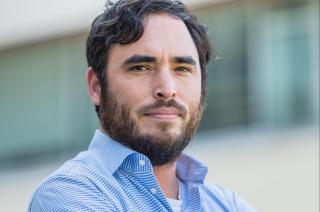Reconciliation begins with truth. This is the impetus behind a new project sharing the stories of Indigenous law school alumni, along with former faculty and staff, who studied and worked at Allard Law over the past 50 years.
The project, titled The Law School Experience: Indigenous Alumni Tell Their Stories, was first suggested by members of an external Dean’s Advisory Council on Truth and Reconciliation at Allard Law as a means of providing a space for Indigenous alumni to reflect and share the unvarnished truth of their experiences as law students.
A diverse cross-section of Indigenous law school alumni, as well as Indigenous former faculty and staff, were invited to share their stories as part of this project.
For many of the alumni who chose to tell their stories, getting to know other Indigenous law students was a high point in what could otherwise be a difficult and demoralizing environment.
“The good parts were being able to hang out and celebrate our culture and do some things with the First Nations students,” said one law school graduate who chose to participate anonymously. “And then the bad parts of course were just the general atmosphere. The racism and discrimination you just kind of feel being an Aboriginal person in law school.”
Another common theme throughout many of the stories was the need to step up to educate students and faculty who seemed to be largely unaware of and uninterested in Indigenous history and Aboriginal law.
Alum Cynthia Callison (LLB ’95), who is a member of the Crow Clan in the Tahltan Nation and founding Partner at Callison and Hanna, recalled having to step up, along with three of her Indigenous classmates, to teach the Aboriginal title component of her first-year property law class. “In many of the classes that I was at, we were basically asked to address any issue surrounding Aboriginal people, simply because the faculty didn’t have that knowledge,” she added. “I often feel like I should never have had to pay tuition in law school because we were always called upon to educate students and faculty around Indigenous issues.”
Indigenous former faculty, staff and leadership at the law school also shared their experiences and efforts working towards changing legal education and the legal profession for the better.
“I tried to help students feel welcome and connected to one another and the broader school,” said U of T law professor Dr. John Borrows, FRSC, OC, who was formerly a law professor and the director of what was then known as First Nations Legal Studies at Allard Law. “I also focused on expanding the curriculum. There was a course or two on Indigenous issues when I arrived and the students wanted more. I chaired a Faculty committee related to First Nations legal issues and with the students’ advocacy and ideas, alongside faculty support, UBC Law boosted the offerings in the field from two to seven.”
In addition to personal stories, the project also includes a timeline highlighting important milestones sketching out the development of Indigenous legal education at Allard Law, beginning in 1973.
As several alumni note in their stories, more needs to be done to work towards genuine reconciliation. “I think what a lot of non-Indigenous people fail to realize is – and I think this is especially happening with the TRC – they are sort of going through the motions of reconciliation, but their hearts aren’t really in it,” said alum Isabel Jackson (LLB ’98), who is a member of the Gitxsan First Nation and a co-founder of the Canadian Bar Association of BC’s Aboriginal Lawyers’ Forum. “That’s what the school should realize too for itself as an institution. ‘Are we just going through the motions?’ Having a program, hiring people, these are all things to do, but I think the impact or the effect it has depends on whether it’s in people’s hearts to do that.”
Allard Law Dean Ngai Pindell says he hopes that reading and reflecting on the personal stories featured in this project will help the law school community move towards genuine reconciliation. “This project provides an important account of the racism Indigenous law students have experienced in our law school and a space to reflect on the enduring challenges that we have to address,” said Allard Law Dean Ngai Pindell. “I’m deeply grateful to each of the contributors who have generously shared their stories. I also want to affirm our commitment to Indigenizing and decolonizing our curriculum and the law school experience.”


